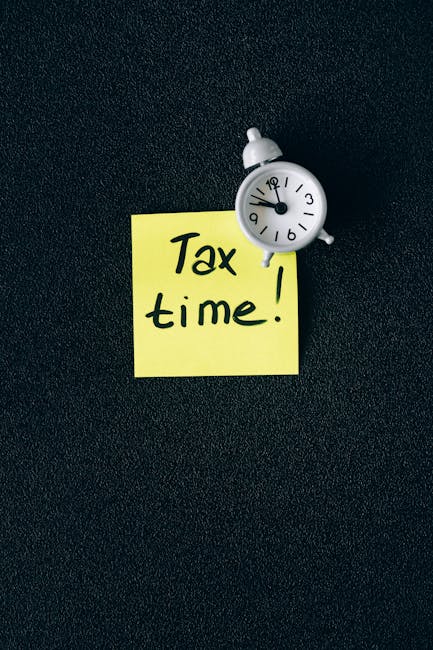How To Improve Time Management Skills For Better Productivity?
Do you ever feel like there just aren’t enough hours in the day? Improving your time management skills can help you get more done without feeling like you’re constantly racing against the clock. By learning how to manage your time effectively, you can boost your productivity, reduce stress, and even carve out more moments for the things you love. Stick around, and we’ll explore practical strategies, tools, and habits that can transform how you approach your day.
Key Takeaways
- Time management is essential for boosting productivity and reducing stress.
- Identifying time-wasting habits is the first step to improvement.
- Simple techniques like time-blocking and the Pomodoro method can work wonders.
- Using tools like planners, apps, and alarms can help you stay on track.
- Building healthy habits ensures long-term success.
Introduction to Time Management
Definition and Importance of Time Management
Time management is the process of planning and controlling how you spend your hours to maximize productivity. It’s not just about cramming more tasks into your day—it’s about working smarter, not harder.
Good time management allows you to focus on what truly matters, whether that’s crushing deadlines at work or spending quality time with family. Without it, you might find yourself overwhelmed, procrastinating, or constantly playing catch-up.
The Link Between Time Management and Productivity
Think of time as a non-renewable resource. Once it’s gone, it’s gone. Effective time management ensures you’re using this resource wisely, focusing on high-impact activities that drive results.
When you manage your time well, you’re not just more productive—you’re also less stressed. You’ll feel in control of your day instead of letting your day control you.
Common Misconceptions About Time Management
Some people think time management is about being busy all the time. Wrong! It’s about being intentional. Others believe it’s only for workaholics or people with rigid schedules. Also wrong. Time management is for anyone who wants to live a more balanced, productive life.

Assessing Your Current Time Management Skills
Identifying Time Wasters
Before you can improve, you need to figure out where your time is slipping away.
Social Media and Digital Distractions
Ever opened Instagram for “just five minutes” and realized an hour has passed? Social media and endless scrolling are major time thieves. Consider setting limits or using apps to monitor your screen time. For more tips, check out this guide on managing distractions.
Inefficient Workflows and Processes
Sometimes, the way you work is the problem. Are you constantly switching between tasks? Do you lack a clear plan? These inefficiencies can eat up hours without you even realizing it.
Recognizing Procrastination Patterns
Procrastination is the silent productivity killer. Do you delay tasks because they feel overwhelming or boring? Understanding why you procrastinate is the first step to overcoming it. Learn more about turning procrastination into action here.
Evaluating Your Daily Schedule
Take a hard look at how you spend your day. Are you prioritizing important tasks, or are you stuck in a cycle of putting out fires? A daily schedule audit can reveal where you’re losing time.

Strategies to Improve Time Management
Prioritizing Tasks Effectively
Using the Eisenhower Matrix
This simple tool helps you categorize tasks into four quadrants: urgent and important, important but not urgent, urgent but not important, and neither. Focus on the first two categories to make the most of your time.
Identifying High-Impact Activities
Ask yourself: “What’s the one thing I can do today that will make everything else easier or unnecessary?” This question can help you zero in on tasks that truly matter.
Breaking Down Goals into Actionable Steps
Big goals can feel overwhelming. Break them into smaller, manageable tasks. For example, instead of “write a book,” start with “outline chapter one.”
Utilizing Time-Blocking Techniques
Time-blocking involves scheduling specific blocks of time for different tasks. It’s like giving every hour a job. This method helps you stay focused and avoid multitasking.
Implementing the Pomodoro Technique
Work for 25 minutes, then take a 5-minute break. Repeat. This technique keeps your brain fresh and prevents burnout.
Setting Specific Time Limits for Tasks
Deadlines create urgency. Even if a task doesn’t have a hard deadline, set one for yourself. You’ll be amazed at how much faster you work.

Tools and Techniques for Better Time Management
Using Technology to Your Advantage
Productivity Apps and Software
Apps like Trello, Asana, and Todoist can help you organize tasks and track progress.
Digital Calendars and Planners
Google Calendar or Microsoft Outlook can keep your schedule in check. Set reminders for important tasks and appointments.
Leveraging Physical Tools
Paper Planners and To-Do Lists
Sometimes, old-school methods work best. Writing things down can help you remember and prioritize.
Visual Timers and Alarms
A simple timer can keep you on track, especially when using techniques like Pomodoro.

Building Healthy Time Management Habits
Tackling Challenging Tasks First
Start your day with the hardest task. Once it’s done, everything else will feel easier.
Learning to Say No and Delegate
You can’t do everything. Learn to say no to tasks that don’t align with your priorities, and delegate when possible.
Establishing a Consistent Routine
Consistency is key. A regular routine helps you build momentum and stay productive.
Reviewing and Adjusting Your Plan Regularly
Life happens. Review your schedule weekly to see what’s working and what’s not. Adjust as needed.

Overcoming Common Time Management Challenges
Strategies to Stop Procrastinating
Break tasks into smaller steps, set deadlines, and reward yourself for progress. For more ideas, check out this article.
Managing Interruptions and Distractions
Turn off notifications, close unnecessary tabs, and let others know when you’re unavailable.
Dealing with Overcommitment
It’s okay to say no. Overloading your plate only leads to stress and burnout.
The Benefits of Effective Time Management
Increased Productivity and Efficiency
When you manage your time well, you get more done in less time. It’s that simple.
Reduced Stress and Burnout
Knowing you’re on top of things can significantly lower your stress levels.
Improved Work-Life Balance
Good time management means you’ll have more time for hobbies, family, and relaxation.

Conclusion
Recap of Key Strategies
From identifying time-wasters to leveraging tools and building healthy habits, there are countless ways to improve your time management skills.
Encouragement to Take Action
Don’t just read about it—start implementing these strategies today. Even small changes can make a big difference.
Final Thoughts on Long-Term Success
Time management isn’t a one-and-done deal. It’s a skill you’ll refine over time. Stick with it, and you’ll not only boost your productivity but also enjoy a more balanced, fulfilling life.
For more tips, check out this resource on mastering your schedule.
FAQ: Mastering Time Management Skills for Better Productivity – Your Guide to Getting More Done!
What is time management, and why is it important?
Time management is the process of planning and controlling how much time to spend on specific activities. It is important because it helps you prioritize tasks, reduce stress, and achieve your goals more efficiently, ultimately leading to better productivity and work-life balance.
How can I identify where I’m wasting time?
Start by tracking your daily activities for a week. Use tools like time-tracking apps or a simple journal to note how you spend your time. This will help you identify patterns, distractions, or low-priority tasks that consume your valuable hours.
What are some effective time management techniques?
Popular techniques include the Pomodoro Technique (working in focused intervals), Eisenhower Matrix (prioritizing tasks based on urgency and importance), and time-blocking (allocating specific time slots for tasks). Experiment to find what works best for you.
How do I set realistic goals for better time management?
Use the SMART criteria: make your goals Specific, Measurable, Achievable, Relevant, and Time-bound. Breaking larger goals into smaller, actionable steps can also make them more manageable and less overwhelming.
What role does prioritization play in time management?
Prioritization helps you focus on tasks that matter most, ensuring that your energy is spent on high-impact activities. By ranking tasks based on urgency and importance, you can avoid procrastination and meet deadlines effectively.
How can I minimize distractions while working?
Create a dedicated workspace, turn off unnecessary notifications, and use apps to block distracting websites. Setting boundaries with colleagues or family members and scheduling regular breaks can also help you stay focused.
What tools can help me improve my time management skills?
There are many tools available, such as task management apps (e.g., Trello, Asana), calendar apps (e.g., Google Calendar), and time-tracking tools (e.g., Toggl, RescueTime). Choose tools that align with your workflow and preferences.
How can I handle procrastination effectively?
Break tasks into smaller, manageable steps and set short deadlines for each. Reward yourself for completing tasks, and use techniques like the two-minute rule: if something takes less than two minutes, do it immediately. Building momentum can help overcome procrastination.
What is the role of self-care in time management?
Self-care is crucial for maintaining energy and focus. Ensure you get enough sleep, exercise regularly, and take breaks to recharge. A healthy body and mind are essential for staying productive and managing your time effectively.
How long does it take to develop strong time management skills?
Improving time management is a gradual process that requires consistent effort. While you may notice improvements within a few weeks, mastering these skills can take months. Stay patient and adapt your strategies as you learn what works best for you.



